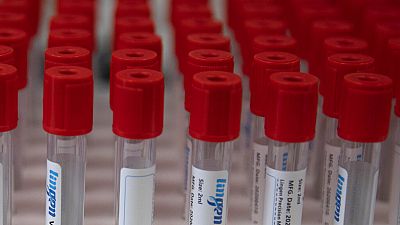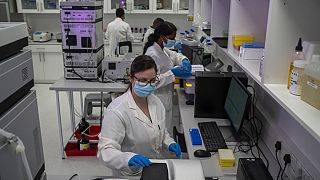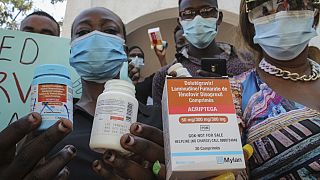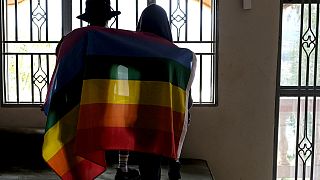HIV
Scientists claim to have eradicated HIV from infected cells using Crispr gene-editing technology, which won the Nobel Prize.
Crispr acts like molecular scissors, cutting DNA to remove or deactivate harmful sections.
The goal is to completely eliminate the virus from the body, but more research is necessary to ensure safety and effectiveness.
Current HIV treatments can suppress the virus but not eliminate it.
Presenting their initial findings at a medical conference, the University of Amsterdam team emphasizes that their work is still in the early stages and not a cure for HIV yet.
Dr. James Dixon from the University of Nottingham agrees, stating that further investigation is required.
Efforts are ongoing by other scientists and Excision BioTherapeutics, with three HIV patients showing no major side effects after 48 weeks.
However, experts like Dr. Jonathan Stoye from the Francis Crick Institute warn about the challenge of removing HIV from all potentially infected cells and the risk of long-term side effects.
Effective treatment can suppress HIV, but some infected cells remain dormant, posing a risk if treatment is stopped.
While rare cases have shown apparent cures after aggressive cancer therapy, this approach isn't advisable solely for HIV treatment.














02:05
Global life expectancy plunges as WHO warns of deepening health crisis Post-COVID
Go to video
Africa’s youngest leader divides opinion over Russia ties
Go to video
Amnesty report exposes abuse of Kenyan domestic workers in Saudi Arabia
Go to video
US Court cuts $18 million defamation payout to Ghanaian journalist Anas Aremeyaw Anas
00:53
49 white South Africans head to US under Trump refugee offer
Go to video
Burkina Faso forces killed 100 civilians in March – HRW